Since its inception in 1999 the annual Pan-Hellenic Seed Exchange Festival has become an international gathering; drawing 7,000 participants to remote Mesohori in northern Greece. During the event, 10,000 seed envelopes of local varieties and over 8,000 plants are distributed free of charge by Peliti, the association at the heart of the action. ARC2020 visits Panagiotis Sainatoudis, the NGO’s enigmatic founder and coordinator.
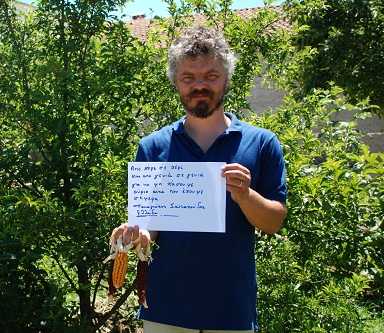
Describing himself as a bridge between people wanting to grow local varieties and those who have them, Panagiotis is a busy man. His mobile phone rings incessantly. It’s too hot outside so we meet in Peliti’s office located in the courtyard of his home. It is manned by Antonis – an agronomist in charge of Peliti’s seed bank, and Dimiter – a volunteer and agronomy student from Thessaloniki. “Panagiotis is an inspiration, an example,” is how Dimiter described the founder to me the previous day. Sipping elderflower water made by his wife Sophia, we talk about politics, values and life journeys.
We start from the beginning: “Twenty years ago I bought a packet of seed varieties from Latin America. They came from an indigenous tribe that didn’t exist anymore. This is how seeds first touched me. Sometime later, my brother who was getting married asked me to help distribute invitations in our village. Amongst one of the invitees was an elderly lady who was growing black corn to make pop-corn for her grandchildren. I asked for some seeds and was struck by an idea. I decided to ask each person I was handing an invitation to if they had seeds from the plants they cultivate. By the time I had delivered all invitations I was the proud keeper of several local bean, corn and pumpkin varieties. That black corn was Peliti’s precursor!”
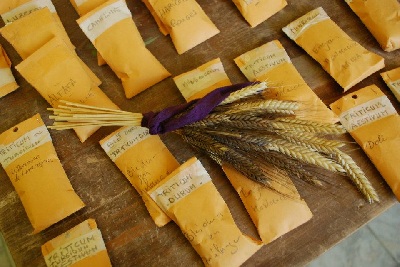
Between 1991 and 2001, Panagiotis went on to collect 1200 local seed varieties – mostly by hitchhiking and walking. Asking him what he lived from he explains “I had nothing, and at the same time I had everything. Everyday miracles happen if we care to see them”. Many of the seeds he collected come from the Pomak region. “The Pomaks are Muslims that have since antiquity lived in the Rhodope Mountains.” Panagiotis’ eyes glance outside as if travelling. “For political, religious and linguistic reasons they remained isolated until fairly recently. This is where I found plants and seeds like spring rye and indigenous farm animals. The Pomak are a source of seeds, knowledge, and much more.” His glance returns and he continues, “All these treasures or miracles led to the founding of Peliti in 1995.”
We move to politics. The previous day Greece elected a new government and I am eager to learn what Panagiotis thinks about these kinds of realities. He is about to answer when the door swiftly opens without a knock. In strides a self-confidant man wearing a tight shirt. I am told that the news of my arrival travelled fast for we are honored by the visit none other than the vice-mayor of Mesohori. His arms gesture while he explains Panagiotis’ importance. The annual one day seed exchange provides as much income for the community as 6 month worth of work. He is quick at linking this with biodiversity and the Rhodope Mountains. The situation feels like being in a play that involves a jester, a king and his court. Eventually I am asked to clarify the reason for my visit. I duly explain and invite the vice-mayor to write a photo message for the Good Food March. This pleases him tremendously and he exits to join the photographer very much in the way he had entered a little earlier. Flamboyantly. “I hope this answers your question,” is all Panagiotis has to say. His eyes are giving him away though – they are smiling.
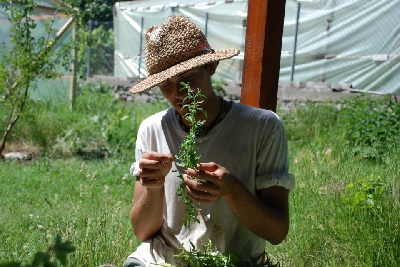
We then move onto his hopes and expectations for the CAP reform. “Everything we see are dreams that have come true. Our phones, our clothes, cars, this office – everything. A person made these things, but they first had an idea. That idea thus was a dream. Some perhaps believed that these ideas were not possible, but they still insisted on making them true. The EU was a also dream that was then realised. My plan to save and freely distribute local seed varieties is about freedom and democracy. We must ask ourselves to what we want to wake up to. It is in our hands to wake up to healthy food, to small-scale agriculture and to personal relationships between producers and consumers. We have to think about what we want, about what seeds we sow. We are the ones that make the choice. We will reap what we sow.”
Panagiotis Sainatoudis has been invited to join the ARC2020 and Slow Food conference in Brussels on 19th September but insists on walking with the participants of the Good Food March “at least for a few days.”




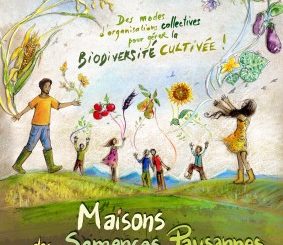
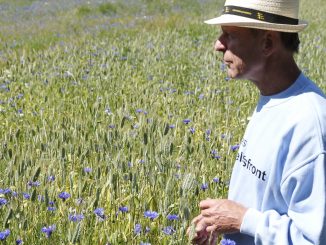
1 Trackback / Pingback
Comments are closed.